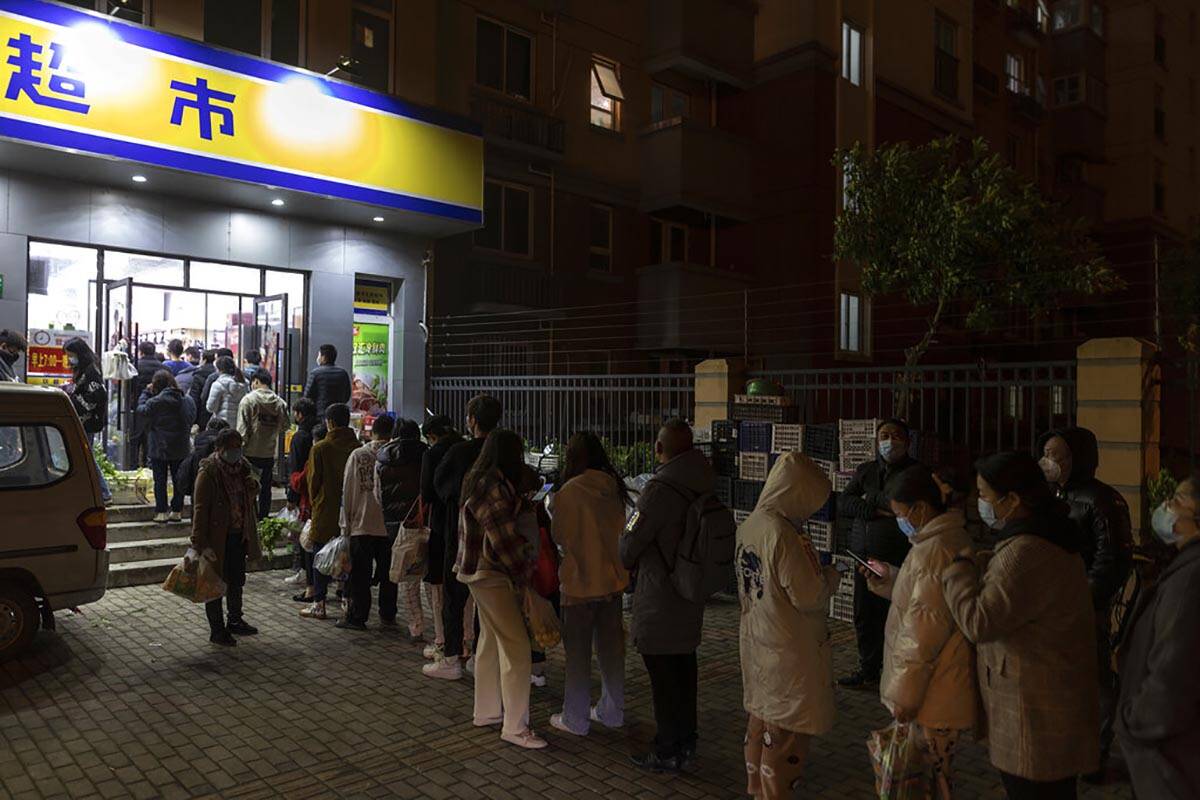Shanghai area of 26M locked down for mass COVID-19 testing
BEIJING — China began locking down most of its largest city of Shanghai on Monday as a coronavirus outbreak surges and amid questions about the economic toll of the nation’s “zero-COVID” strategy.
Shanghai’s Pudong financial district and nearby areas will be locked down from early Monday to Friday as citywide mass testing gets underway, the local government said. In the second phase of the lockdown, the vast downtown area west of the Huangpu River that divides the city will then start its own five-day lockdown Friday.
Residents will be required to stay home and deliveries will be left at checkpoints to ensure there is no contact with the outside world. Offices and all businesses not considered essential will be closed and public transport suspended.
Already, many communities within the city of 26 million have been locked down, with their residents required to submit to multiple tests for COVID-19. And Shanghai’s Disney theme park is among the businesses that closed earlier.
Shanghai detected another 3,500 cases of infection on Sunday, though all but 50 were people who tested positive but were not showing symptoms of COVID-19. China categorizes such cases separately from “confirmed cases” — those in people who are sick — leading to much lower totals in daily reports.
China has reported more than 56,000 infections nationwide this month, with a surge in the northeastern province of Jilin accounting for most of them.
In response to its biggest outbreak in two years, China has continued to enforce what it calls the “dynamic zero-COVID” approach, calling that the most economical and effective prevention strategy against COVID-19.
That requires lockdowns and mass testing, with close contacts often being quarantined at home or in a central government facility. The strategy focuses on eradicating community transmission of the virus as quickly as possible, sometimes by locking down entire cities.
While officials, including Communist Party leader Xi Jinping have encouraged more targeted measures, local officials tend to take a more extreme approach, concerned with being fired or otherwise punished over accusations of failing to prevent outbreaks.
With China’s economic growth already slowing, the extreme measures are seen as worsening difficulties striking employment, consumption and even global supply chains.
While China’s vaccination rate is around 87%, it is considerably lower among older people.
National data released earlier this month showed that over 52 million people aged 60 and older have yet to be vaccinated with any COVID-19 vaccine. Booster rates are also low, with only 56.4% of people between 60-69 having received a booster shot, and 48.4% of people between 70-79 having received one.






















